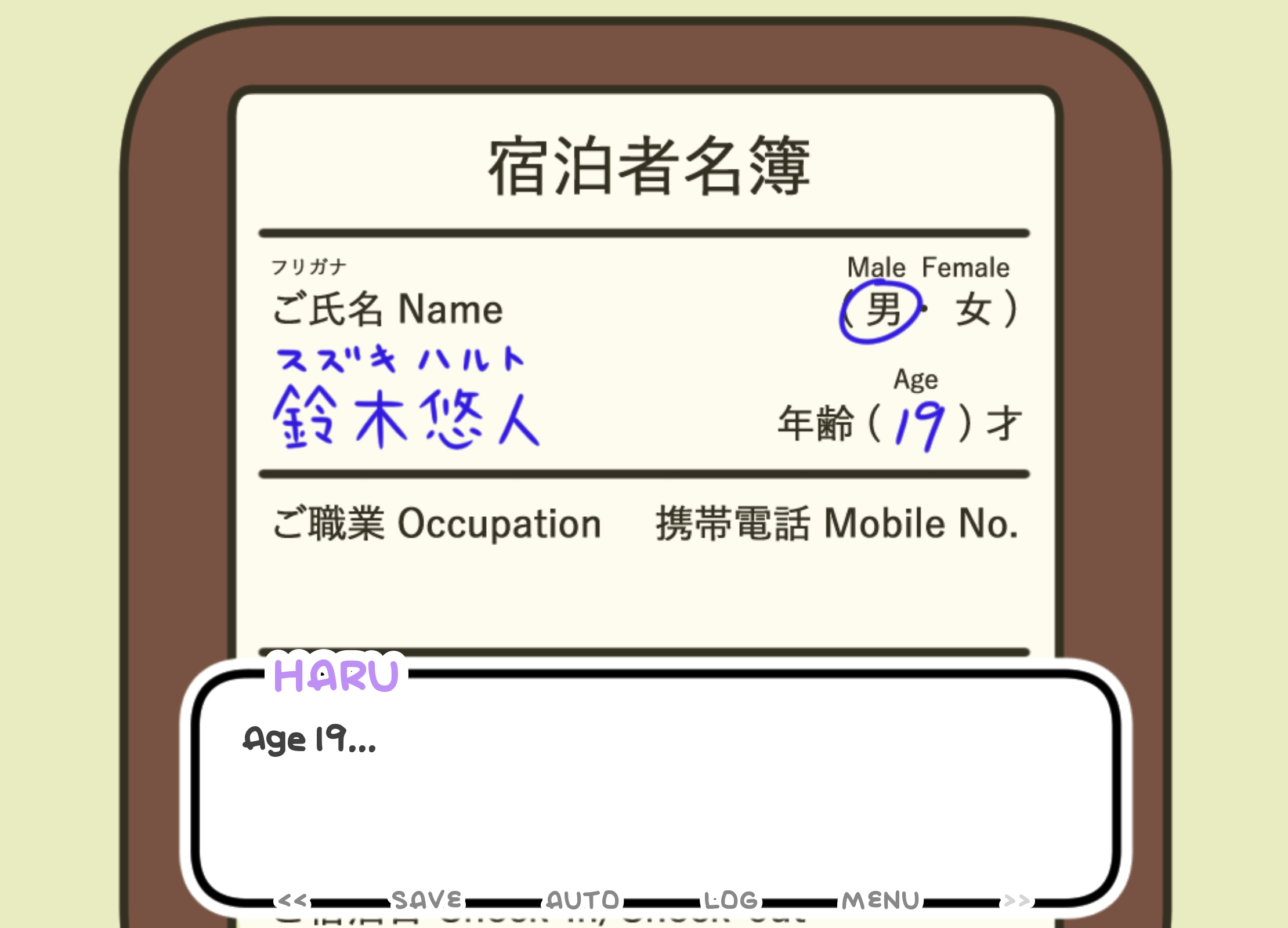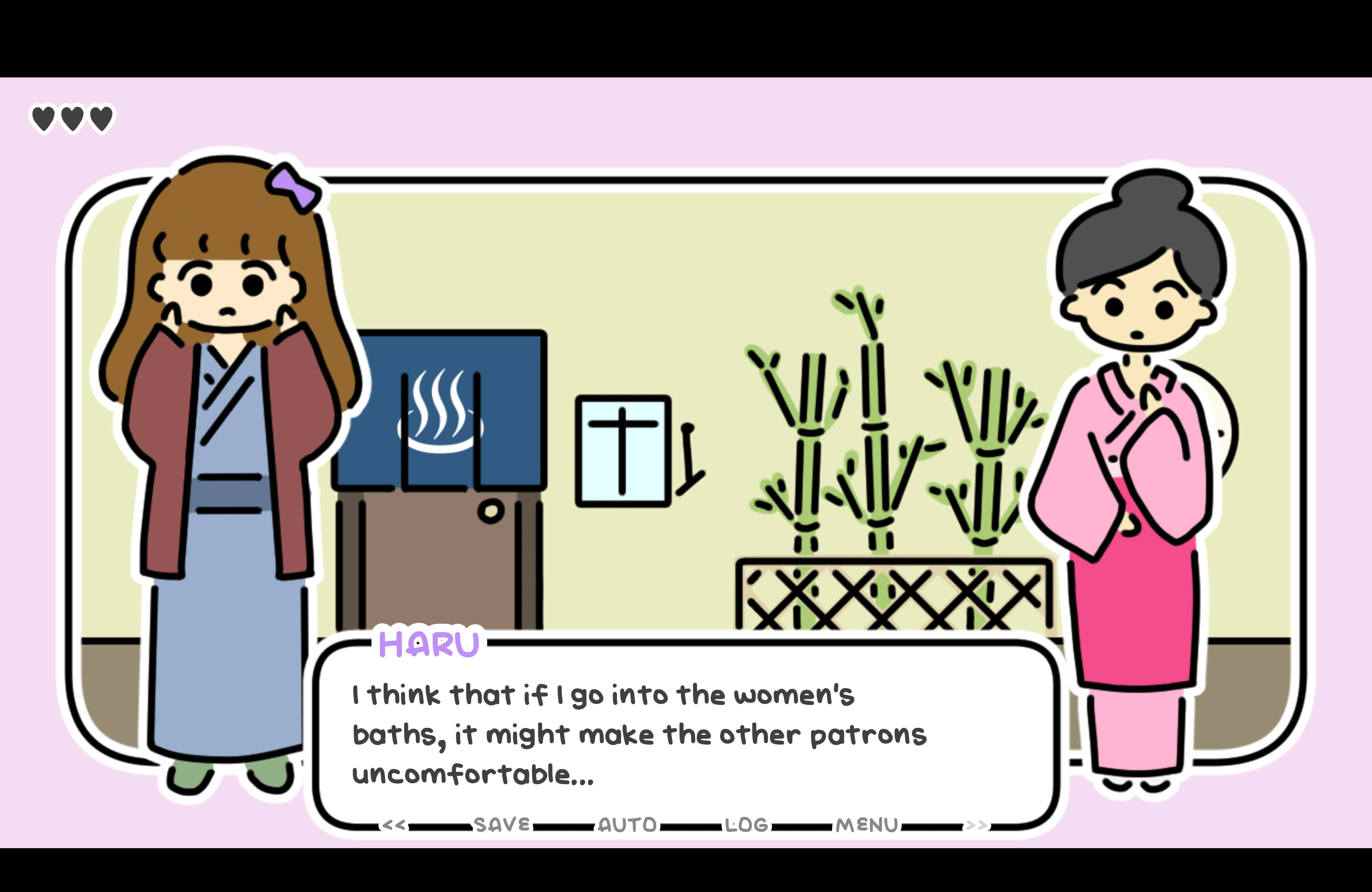For playing like a feminist, this week I chose to play One Night, Hot Springs. It’s a sweet and calm narrative driven game about a transgender woman going to a hot springs town in Japan.
The game starts off with Haru, the main character, being invited for their best friend’s birthday at a hot springs. She has hesitations but it is not clear why at this point. It is when she signs into the resort that we learn Haru’s legal gender is male. Throughout the game we see Haru learning about the etiquettes of being a woman and a transgender woman under different circumstances. We learn that, for Haru, it’s very important not to inconvenience others but she still needs accommodations to make her feel comfortable.

The game does a good job of making the story flow naturally. The game is obviously about transgender experiences and it does that naturally. It doesn’t feel like it’s pushing an agenda but rather that it’s walking us through an uncomfortable experience for someone who is young and happens to also be transgender.

For instance, when Haru is first invited for the hot springs, she starts researching what women expect her to do in these spaces. I found this very relatable even as a cis woman. It’s part of growing up and doing more things in public without parental supervision. This is also just as relatable to someone who hasn’t had a lot of female influences growing up, even in cultures with a hot springs culture.
In another example, the third in the party decides to order beer at the resort. Haru knows they’re all underage and is uncomfortable with this. She orders oolong tea instead. This is a story line that many young folks can relate to as well.
By embedding this feminist story within a larger and more generally relatable narrative, it naturalizes it and doesn’t make it feel like it doesn’t belong.
However, I do think that it falls short and is more of a story than a game. The reason being that the game doesn’t really offer the player real options to drive the narrative. There is no agency given to the player. In part, I think this was because the designers wanted to have control over the story that unfolds. But this has left it to have “false choices” for players. I felt the choices provided were shallow ones meant to give the illusion of agency. One of these choices said ,”Say thank you for listening” or “It’s okay”.
However, this doesn’t mean that the game wasn’t designed to have different outcomes. If you chose to take a meeker actions, staying quiet or not imposing on anyone, you lose a heart until the game ends and you are prompted back to the beginning. I feel that the choices are still not designed well enough to make them feel like they’re real choices.
The game designers should consider how they can make the different scenarios more of a suspenseful choice structure to keep it interesting as a game a player would want to play.



